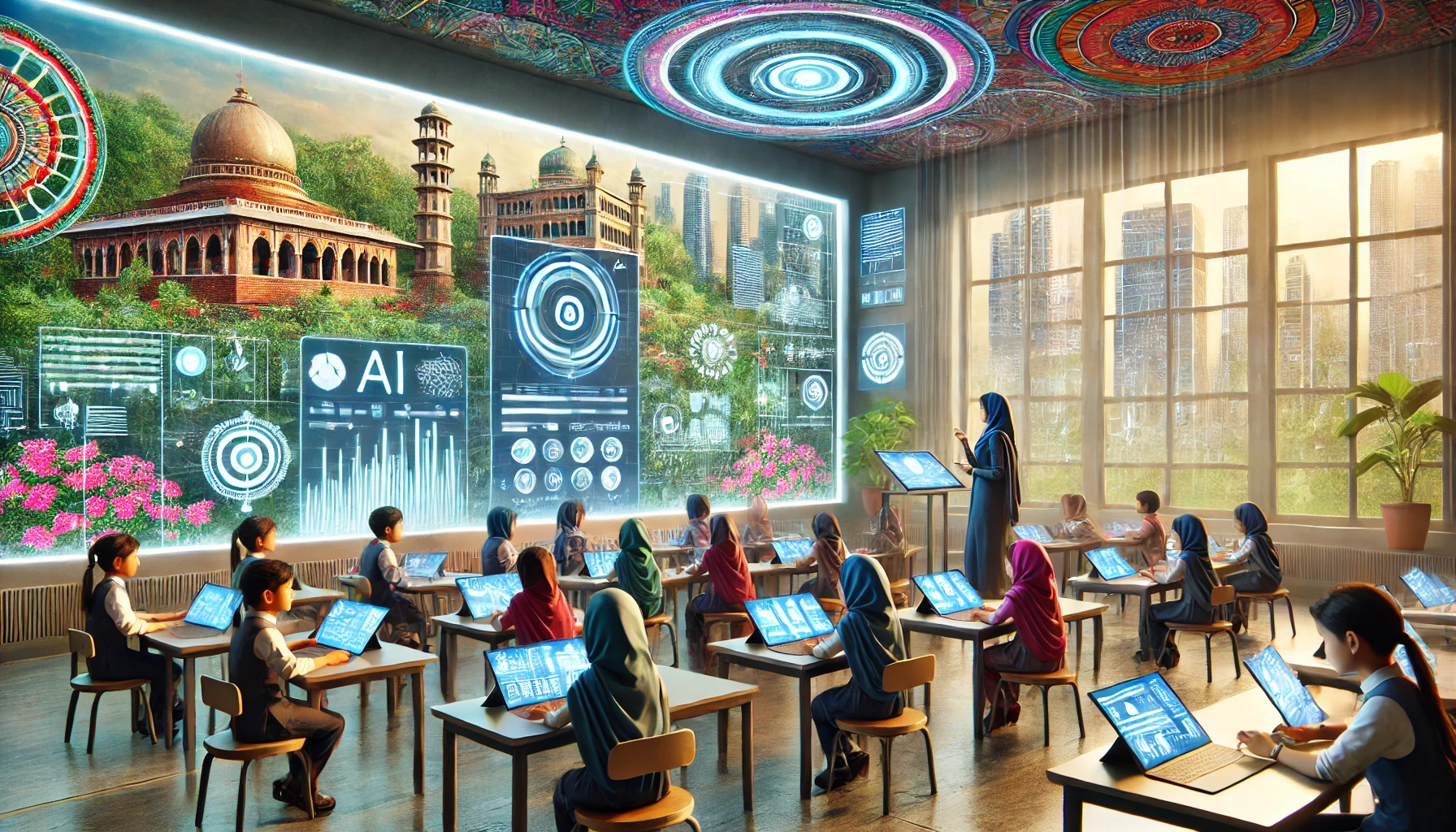AI in Bangladeshi Schools: Bridging Educational Disparities with Innovation
The Asian Development Bank’s study highlights the potential of AI to enhance education in Bangladesh, particularly in lesson planning and personalized learning, while addressing challenges like infrastructure gaps and teacher training. Success hinges on tailored tools, robust infrastructure, and ethical AI practices to empower teachers and bridge educational disparities.

The Asian Development Bank (ADB), alongside researchers from the Massachusetts Institute of Technology’s Computer Science and Artificial Intelligence Laboratory and the University of Oxford, has undertaken a pioneering study on the integration of artificial intelligence (AI) into Bangladesh’s primary education sector. This comprehensive initiative, conducted between 2023 and 2024, explored how AI could enhance teaching practices and tackle challenges inherent in the education system. With its vast and diverse student population, Bangladesh offers fertile ground for AI-driven innovations, yet significant obstacles such as infrastructure gaps, cultural alignment, and teacher training remain. The project aimed to assess teachers’ needs, perceptions, and readiness to adopt AI while proposing strategies for effective implementation tailored to the local context.
Teachers Embrace AI for Routine and Creative Tasks
The study revealed a remarkable openness among educators to using AI in the classroom. Over 93% of teachers surveyed believed AI could benefit primary education, particularly in lesson planning, material preparation, and assessment creation. Teachers highlighted AI’s potential to enhance efficiency and inspire creativity by automating repetitive tasks, allowing them to focus on more interactive and student-centered activities. Respondents, especially those in resource-limited rural areas, viewed AI as a means to bridge gaps in educational quality by offering personalized and adaptive learning experiences. However, concerns emerged about using AI for tasks involving human interaction, such as student engagement and parent communication, underscoring the irreplaceable value of personal connections in education.
Training: The Key to Confidence and Readiness
Teacher training emerged as a critical factor in shaping attitudes toward AI adoption. Educators who attended in-person workshops showed a significantly greater willingness to incorporate AI into their teaching. These sessions, which emphasized hands-on learning and context-specific applications, boosted teachers’ confidence and demystified AI’s role in education. Nonetheless, many educators admitted to having limited knowledge of AI, calling for comprehensive training programs that align with their specific needs. This sentiment was especially strong among rural teachers, who stressed the importance of Bangla-language tools and culturally relevant resources to ensure accessibility and inclusivity.
Overcoming Barriers to AI Integration
Despite their enthusiasm, teachers face numerous challenges in integrating AI into their classrooms. Infrastructure deficiencies, such as unreliable internet, frequent power outages, and limited access to devices, remain significant obstacles, particularly in rural and underserved areas. Teachers also expressed concerns about data privacy, ethical use of AI, and the potential for technology to erode creativity and critical thinking. These challenges point to the need for robust infrastructure investments and clear ethical guidelines to support AI’s effective use in education. Additionally, stakeholders must address fears of over-reliance on technology by ensuring AI complements, rather than replaces, human teaching practices.
Charting the Path Forward for AI in Education
The project highlighted the importance of a multi-faceted approach to AI integration, emphasizing teacher training, infrastructure development, and stakeholder engagement. Educators advocated for investments in reliable internet access, modern devices, and culturally adapted AI tools to ensure these technologies align with the local context. Collaboration with parents, policymakers, and community leaders emerged as a key strategy to foster trust and alignment around AI’s role in education. Teachers also called for transparent and ethical AI guidelines to address data privacy concerns and mitigate biases in AI applications.
AI’s potential to revolutionize education in Bangladesh extends beyond automation. Teachers identified its capacity to personalize learning, streamline administrative tasks, and support students with diverse needs. By analyzing individual student performance, AI can tailor interventions to enhance outcomes and reduce inequalities. However, realizing this potential requires addressing systemic barriers and fostering an ecosystem that supports responsible AI use. Teachers’ perspectives underscore a cautious optimism—a recognition of AI’s promise tempered by a realistic understanding of the challenges involved.
Building an AI-Enabled Future for Education
This initiative by the ADB and its partners provides actionable insights for policymakers while highlighting the pivotal role of teachers in shaping the future of AI-driven education. The study concluded that the success of AI in education depends on a thoughtful and inclusive implementation strategy that prioritizes teacher empowerment, infrastructural improvements, and cultural alignment. By leveraging AI responsibly, Bangladesh can prepare its youth for the demands of an increasingly automated world, advancing both its educational and economic goals. Through investments in digital literacy and the development of localized solutions, AI has the potential to bridge educational disparities and equip students and teachers alike with the skills needed for a knowledge-based economy.
With its focus on fostering collaboration, building trust, and addressing context-specific challenges, the initiative reflects Bangladesh’s commitment to educational transformation. As the country strives to enhance access, equity, and quality in education, integrating AI represents a bold step toward realizing these ambitions. By aligning with global best practices and ensuring that technology serves as a tool for empowerment rather than replacement, Bangladesh can pave the way for a future where education is not only inclusive but also forward-looking and resilient.
- FIRST PUBLISHED IN:
- Devdiscourse










